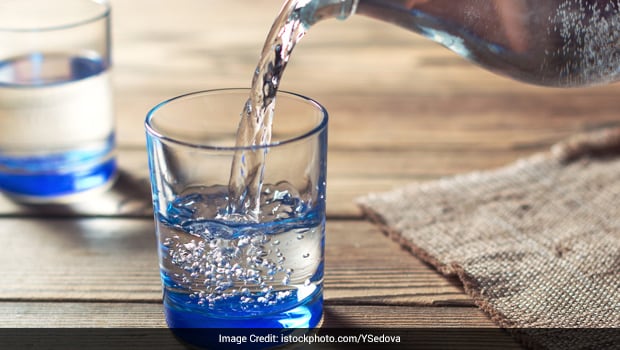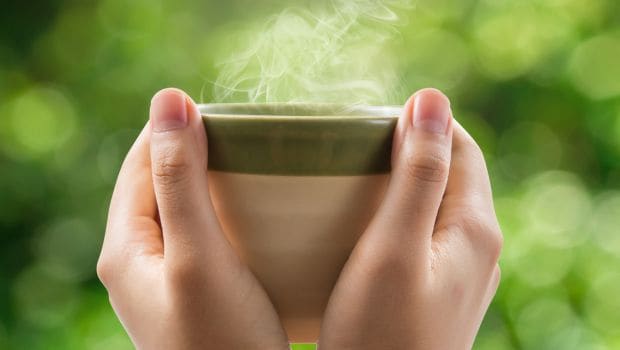Let's admit it, summers in India could be harsh. The sweltering heat that could potentially melt the toughest of skins demand for all things chilled. But, what if we tell you that in some of the hottest parts of the country, people still prefer to have hot glass of water over a chilled one, irrespective of what the weather is outside? Yes, you heard us! As you go down south, you would see a unique tradition of serving lukewarm water with meals. Not just local households, restaurants in Kerala and Tamil Nadu also tend to serve warm water with meals. Food writer Ashwin Rajagopalan tells us, "According to Ayurveda, drinking warm water with and after the meals balances the internal doshas in the body. Warm water helps aid smoother digestion, as opposed to chilled water, which only shocks the system further. Another interesting drink you would find in Kerala is 'Chukkuvellum,'which is a herbal and medicated hot beverage made by adding spices and herbs such as cumin and ginger." Chukkuvellum is a common drink served across Kerala. Chukku means dry ginger and vellam means water, a mixture of which is an exceptional remedy to treat cold and cough, too. One can also add coriander (mallivellam) or cumin (jeerakavellam) to the drink.
(Also Read: Why You Should Start Your Day With a Glass of Warm Water)
While the jury is divided on whether one should drink water in between meals or maintain a window of 15 minutes. But, in various Indian cultures, sipping into water whilst having food is a common sight. One of the best benefits of drinking hot water with meals is said to be its impact on digestion. The practice is believed to be tied with ancient Ayurvedic teachings.
According to the book 'Complete Book of Ayurvedic Home Remedies' by Dr. Vasant Lad, drinking very chilled water during meals is not a good eating practice as it may douse the digestive fire. "During meals, don't drink iced drinks of fruit juice, sip a little warm water between mouthfuls of food," he notes. There are many ancient Ayurvedic practices that are still practiced in south India; the tradition of sipping into hot water while having meals is one of them. Be it traditional feasts, or regular household meals, the water is served lukewarm. (Also Read: Benefits Of Alkaline Water: Health Benefits, How To Make Alkaline Water And Its Side Effects)
In any case, one should try to avoid drinking chilled water. According to Ayurveda, doing so can disturb the normal functioning of the gastric juices and also upset the balance of doshas. Experts claim that chilled water and even cold beverages contract your blood vessels, thereby, restricting digestion. It also hinders the natural process of absorbing nutrients during digestion. On the other hand, drinking lukewarm water makes the process of digestion less cumbersome for the body. It makes sure the undigested fats in the food don't solidify and stick to your inner lining. In addition to digestion, lukewarm water also facilitates better elimination of toxins, stimulate hunger, soothe throat, cleanse bladder, and also cure constipation. So, this summer, try ditching your chilled glass of water and try the south Indian way. Tell us how it helped you in the comments section.
(Also Read: Why You Should Start Your Day With a Glass of Warm Water)
While the jury is divided on whether one should drink water in between meals or maintain a window of 15 minutes. But, in various Indian cultures, sipping into water whilst having food is a common sight. One of the best benefits of drinking hot water with meals is said to be its impact on digestion. The practice is believed to be tied with ancient Ayurvedic teachings.
According to the book 'Complete Book of Ayurvedic Home Remedies' by Dr. Vasant Lad, drinking very chilled water during meals is not a good eating practice as it may douse the digestive fire. "During meals, don't drink iced drinks of fruit juice, sip a little warm water between mouthfuls of food," he notes. There are many ancient Ayurvedic practices that are still practiced in south India; the tradition of sipping into hot water while having meals is one of them. Be it traditional feasts, or regular household meals, the water is served lukewarm. (Also Read: Benefits Of Alkaline Water: Health Benefits, How To Make Alkaline Water And Its Side Effects)

Drinking warm water facilitates digestion
In any case, one should try to avoid drinking chilled water. According to Ayurveda, doing so can disturb the normal functioning of the gastric juices and also upset the balance of doshas. Experts claim that chilled water and even cold beverages contract your blood vessels, thereby, restricting digestion. It also hinders the natural process of absorbing nutrients during digestion. On the other hand, drinking lukewarm water makes the process of digestion less cumbersome for the body. It makes sure the undigested fats in the food don't solidify and stick to your inner lining. In addition to digestion, lukewarm water also facilitates better elimination of toxins, stimulate hunger, soothe throat, cleanse bladder, and also cure constipation. So, this summer, try ditching your chilled glass of water and try the south Indian way. Tell us how it helped you in the comments section.
Advertisement
About Sushmita SenguptaSharing a strong penchant for food, Sushmita loves all things good, cheesy and greasy. Her other favourite pastime activities other than discussing food includes, reading, watching movies and binge-watching TV shows.
For the latest food news, health tips and recipes, like us on Facebook or follow us on Twitter and YouTube.
Tags:








